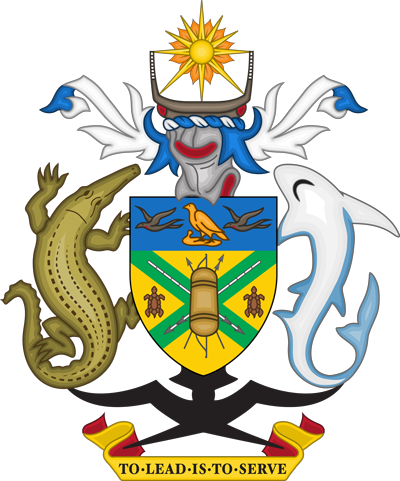

CORAL REEF MANAGEMENT WORKSHOP CONDUCTED
The Coral Reef Rescue Initiative (CRRI) and WWF Solomon Islands in partnership with the Ministry of Environment, Climate Change, Disaster Management and Meteorology (MECDM) conducted an inception workshop on Coral Reef Management at the Solomon Islands Kitano Mendana Hotel on 10 June.
Practitioners from Government, Non-Government Organizations and the Private Sector, who have engaged in climate change, environment and coral reef management, attended the workshop.
The Coral Reef Rescue Partnership is a global initiative with governments, private sector, international NGOs, and civil society partners to sustain and restore the health of coral reef ecosystems in the face of climate threats.
The Initiative is implemented by a partnership of organizations, including Blue Ventures, Rare, CARE International, The University of Queensland, WCS, and WWF, with extensive experience in delivering conservation in close collaboration with governments and local communities.
The Global Coral Reef Rescue Initiative’s (CRRI) underlying theory of change is that if the most resilient coral reefs that host 70% of the global regeneration potential within the coastal waters of the 7 countries can be identified, and if the main local threats to these priority reefs can be reduced to secure reefs in the face of climate change and community and commercial use, then a foundation for global reef maintenance and recovery can be provided for the long term.
The objective of the Coral Reef Rescue Partnership is to apply this approach to building reef productivity and resiliency around the world to protect resilient coral reefs with regeneration potential to globally secure reefs while ensuring co-benefits of biodiversity and livelihoods, with a target of safeguarding the food security and livelihoods of over 120 million reef-dependent people over the next decade.
The GEF (Global Environment Facility) Council approved a four year, GEF-funded (International Waters) project proposal (PIF) in December 2020. The project aims to build capacity and solutions to ensure the long-term survival of climate resilient coral reef ecosystems by supporting the blue economies and communities dependent on these reefs in Philippines, Solomon Islands, Fiji, Indonesia, Tanzania, and Madagascar.
This GEF project has four key components: 1) Global knowledge and capacity building networks for resilient coral reefs; 2) planning for resilient Coral Reef Rescue at the national level; 3) Financial solutions for resilient Coral Reef Rescue; and 4) Knowledge Management and Monitoring and evaluation.
The project design process is scheduled to be undertaken through a GEF project preparation grant (PPG) over the period January – November 2021. Project design requires significant input and support from each of the six countries as well as the senior partners of the Global Coral Reef Rescue Initiative (CRRI) and the WWF global teams.
During the Inception workshop, Permanent Secretary (supervising) for the Ministry of Environment, Climate Change, Disaster Management and Meteorology, Mr Karl Kuper welcomed the GEF approval for WWF and highlighted the global significance of Solomon Islands coral reefs.
“We are guardians of a large ocean – an ocean EEZ of 1,340,000 km2 with a reef area of 5750 km2. Within this area hosts over 1019 species of finfish, over 500 species of corals and extensive mangrove ecosystem. However, national data has also shown that our marine environment is under threat from overfishing, unsustainable harvesting practices such as logging and of course climate change impacts,” Kuper said.
Recognising the threats posed by climate change, participants are keen to engage in this initiative. However, Mr Kuper reminded all practitioners that this inception workshop is to design how the project will be implemented in Solomon Islands.
In addition, it is an opportunity to ensure our lived practices and understanding of our local communities plays an integral part of the project design. Mr Kuper looks forward to a project design that will work for the local communities but at the same time effectively result in safeguarding our coral reef systems in Solomon Islands.
GCU Press